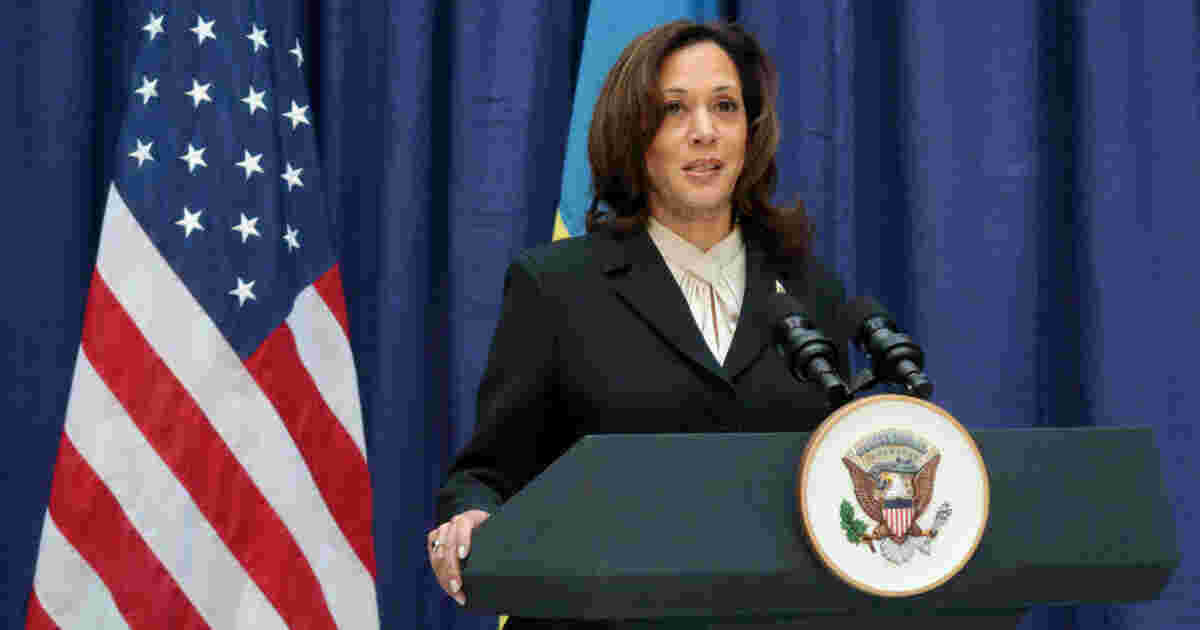After President Biden's announcement that he would not seek reelection, he endorsed Vice President Kamala Harris as his choice for the Democratic nomination. Let's take a look at Harris' involvement in foreign policy over the last three and a half years:
The U.S. Border and Immigration from South and Central America:
Harris was tasked early in the Biden administration with tackling the "root causes" of irregular migration to the United States through its border with Mexico. These root causes, according to Harris, include corruption and a lack of economic opportunities in certain Central and South American nations. As vice president, she has visited Latin America twice: first in 2021 to Mexico and Guatemala, and then again in 2022 to Honduras.
During a speech in Guatemala, she delivered a clear message to those considering an unauthorized journey across the border: "Do not come. The United States will continue to enforce our laws and secure our borders."
In Mexico, Harris announced that the U.S. would be investing millions of dollars to enhance worker protections and push for labor reforms. She also committed to promoting investment in Mexico through initiatives such as loans for affordable housing.
Additionally, Harris forged a joint partnership with Mexico to create economic opportunities in Honduras, Guatemala, and El Salvador, focusing on agriculture and youth empowerment. The White House announced in March that she had secured private sector commitments totaling $5 billion to foster economic opportunities and reduce violence in the region.
China, Taiwan, and the South China Sea:
Harris has been a key messenger for the White House in addressing the challenges posed by China, frequently speaking about countering Chinese influence. During a seven-day trip to Singapore and Vietnam in 2021, she emphasized the need to curb Beijing's actions that undermine the rules-based order and threaten the sovereignty of nations.
In 2022, Harris reaffirmed America's commitment to supporting Taiwan's self-defense. Her visit to Singapore, a close U.S. ally and home to a strategic U.S. Navy base in Southeast Asia, followed similar visits by Secretary of State Antony Blinken and Secretary of Defense Lloyd Austin to Asia. The Biden administration aimed to reassure nervous Asian allies in light of China's assertive policies and the chaotic U.S. military withdrawal from Afghanistan.
Harris emphasized America's "enduring engagement" in Asia and reiterated the importance of an "open and free" Indo-Pacific region, including "freedom of navigation" in the South China Sea.
NATO, Europe, and Russia's War on Ukraine:
Harris has been a vocal supporter of Ukraine in its ongoing conflict with Russia, reiterating America's commitment to the NATO alliance with European partners. She vowed that the U.S. would stand with Ukraine for "as long as it takes."
At the 2022 Munich Security Conference, just days before Russia's full-scale invasion of Ukraine, Harris emphasized America's "unwavering commitment" to NATO and its mutual defense clause, Article 5, calling it "sacrosanct."
The Israel-Hamas Conflict and the Middle East:
Harris has supported Israel's right to defend itself while also emphasizing the importance of protecting innocent civilians. In a briefing in December 2023, she stated that as Israel pursues its military objectives, it must do more to prevent civilian casualties.
She expressed her commitment to a two-state solution, stating that "when this conflict ends, Hamas cannot control Gaza, and Israel must be secure. Palestinians need a hopeful political horizon, economic opportunity, and freedom."
Former Director of the State Department's Bureau of Political Military Affairs, Josh Paul, suggested that Harris might adopt a slightly different approach from Biden regarding Israel. He highlighted her emphasis on a ceasefire and Palestinian humanitarian issues and expressed optimism that she would take a more pragmatic approach as president.
Emmet Lyons contributed to this report.
A look at Kamala Harris' work on foreign policy as vice president
Here's a look at some of Vice President Kamala Harris' foreign policy work over the last three and a half years.

Related Posts

Tom Brady smiles with his lookalike sister in a new family photo celebrating their shared birthday.

Katie Couric's comment on Lauren Sánchez's wedding look has gone viral, labeling it "tacky." The extravagant gown, inspired by 1950s fashion, sparked mixed reactions online.


